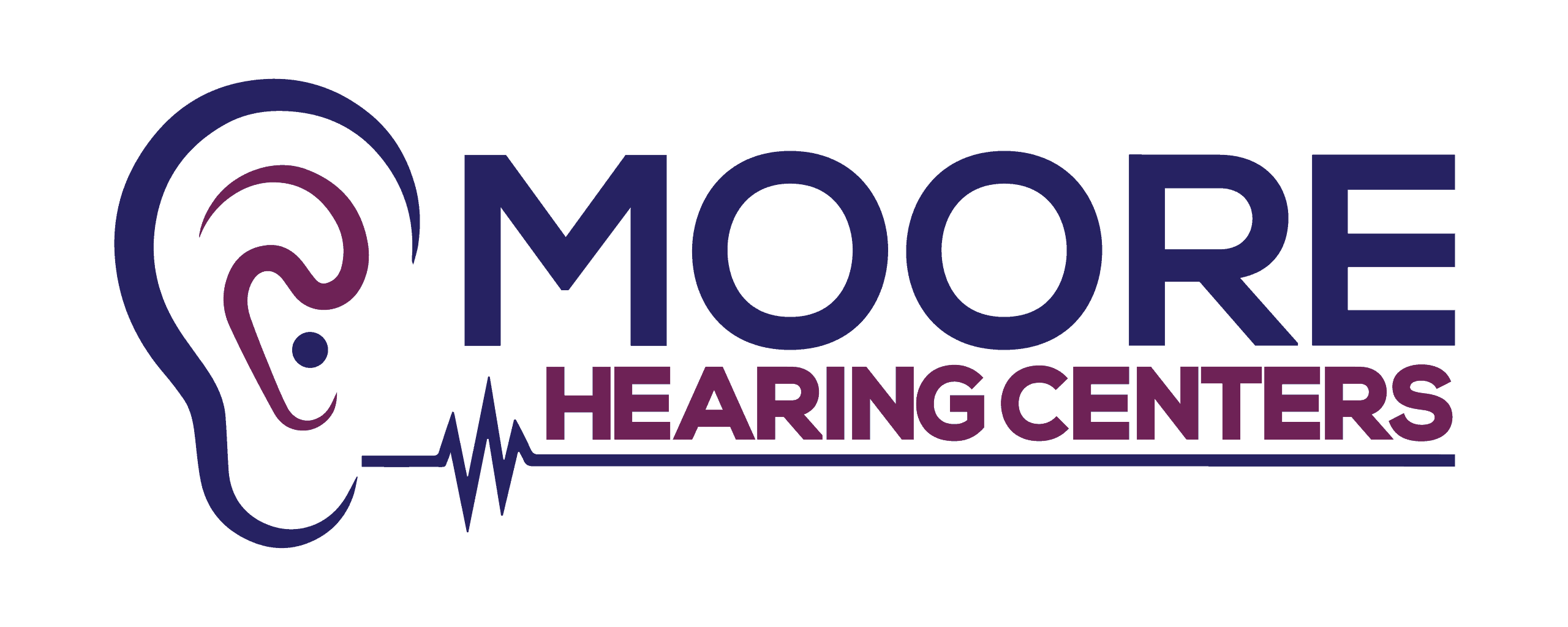Services
Tinnitus Treatment
What is Tinnitus?
From the National Institutes of Health
Sign Up to Redeem
Complimentary Tinnitus Consultation
Sign up for this special offer of a consultation and screening with the team at Moore Hearing Centers.
Do you find that your concentration is interrupted by a persistent buzz in your ears that seems to be coming from nowhere?
It can make it hard to concentrate and even harder to fall asleep and is more serious than you may suspect. This is tinnitus, a condition which affects nearly 50 million people in the United States alone. While sometimes tinnitus can leave as suddenly as it appears, 20 million people report symptoms so severe that it interrupts concentration and makes it hard to sleep. Meanwhile two million report tinnitus so bad it is described as debilitating. Unaddressed tinnitus can lead to sleep issues, problems with concentration, and chronic anxiety leading to hypertension and even heart attack or stroke.
What are the Symptoms of Tinnitus?
From the National Institutes of Health
What are the Causes of Tinnitus?
While the exact causes of tinnitus are not fully understood, it has been linked to the following:
- Excessive Exposure to Noise
- Hearing Loss
- Medications
- Earwax or Ear Infections
- Head or Neck Injuries
- Ménière’s Disease
- Jaw Joint Problems
- Tumor-Related Disorders
- Blood Vessel Problems
- Chronic Health Conditions
What To Expect at Your Tinnitus Appointment
A visit to any health care provider can be stressful for some people. Before the actual test begins, we’ll take a detailed history of the patient, focusing on their hearing health history. Following the history will be a thorough examination of the outer ear and external ear canal. We use an instrument called an otoscope to make sure the ear canal is free of wax. Below is a brief explanation of the individual tests that may be administered during your visit.
We at Moore Hearing Centers believe that if tinnitus is making it hard for you to function there are many options for treatment, including:
Noise Suppression
White Noise Machines
These sounds create a static sound like the ocean or persistent wind, which dampens other noises so you can ignore the ringing of tinnitus. You can purchase these devices or use an app on most smartphones. However, you may find the same success with the use of fans, humidifiers, dehumidifiers, and air conditioners in the bedroom at night.
Masking Devices
For those who wear hearing aids, tinnitus masking can match the pitch and tone of your tinnitus to cancel it out, using noise canceling technology. If you are not using hearing aids yet but want some relief during the day, some devices stand alone as tinnitus masking in your ear canal.
Ear Wax Removal
Medications
Counseling & Stress Reduction
Counseling options include Cognitive behavioral therapy (CBT) which addresses the source of the stress and helps you discover ways of adjusting your response to tinnitus when it comes on.
In addition, any form of stress reduction you can do in your daily life can help you to reduce the effect of tinnitus in your life. This includes meditation, acupuncture, yoga, regular exercise and making sure you get plenty of rest. Even amending your diet or limiting caffeine intake can make a significant difference.
Blood Vessel Management
Hearing Aids
Facts About Tinnitus
90 percent of tinnitus cases occur with an underlying hearing loss.
“I was referred to Dr. Moore and Wendy from a neighbor because I was having issues with my hearing aids, which I purchased from another doctor out of state. Dr. Moore and Wendy helped fix the problem, honored the warranty, and provided exceptional customer service. When I’m in the market for a new pair, I’ll be purchasing from them.”
“I’ve been going to Dr. Moore for many years and he is absolutely top notch. Fantastic professional service and support from everyone in his office. A++++”
“I’ve known Dr. Moore for over 10 years and have always had the best service. Not only do I wear octagon hearing aids but my husband does and we are both super satisfied with our equipment and service that Dr. Moore provides. I highly recommend my friends and relatives who have hearing loss to make an appointment with Dr. Moore.”
Get In touCh
Schedule Your Appointment Now
Address
14633 N Del Webb Blvd
Sun City, AZ 85351
Phone
Message Us
drmoore@moorehearingcenters.com or submit a form here.
Fax: (623) 250-1599
Office Hours
Monday - Thursday:
8:00AM - 4:30PM
Friday:
8:00AM - 12:00PM
